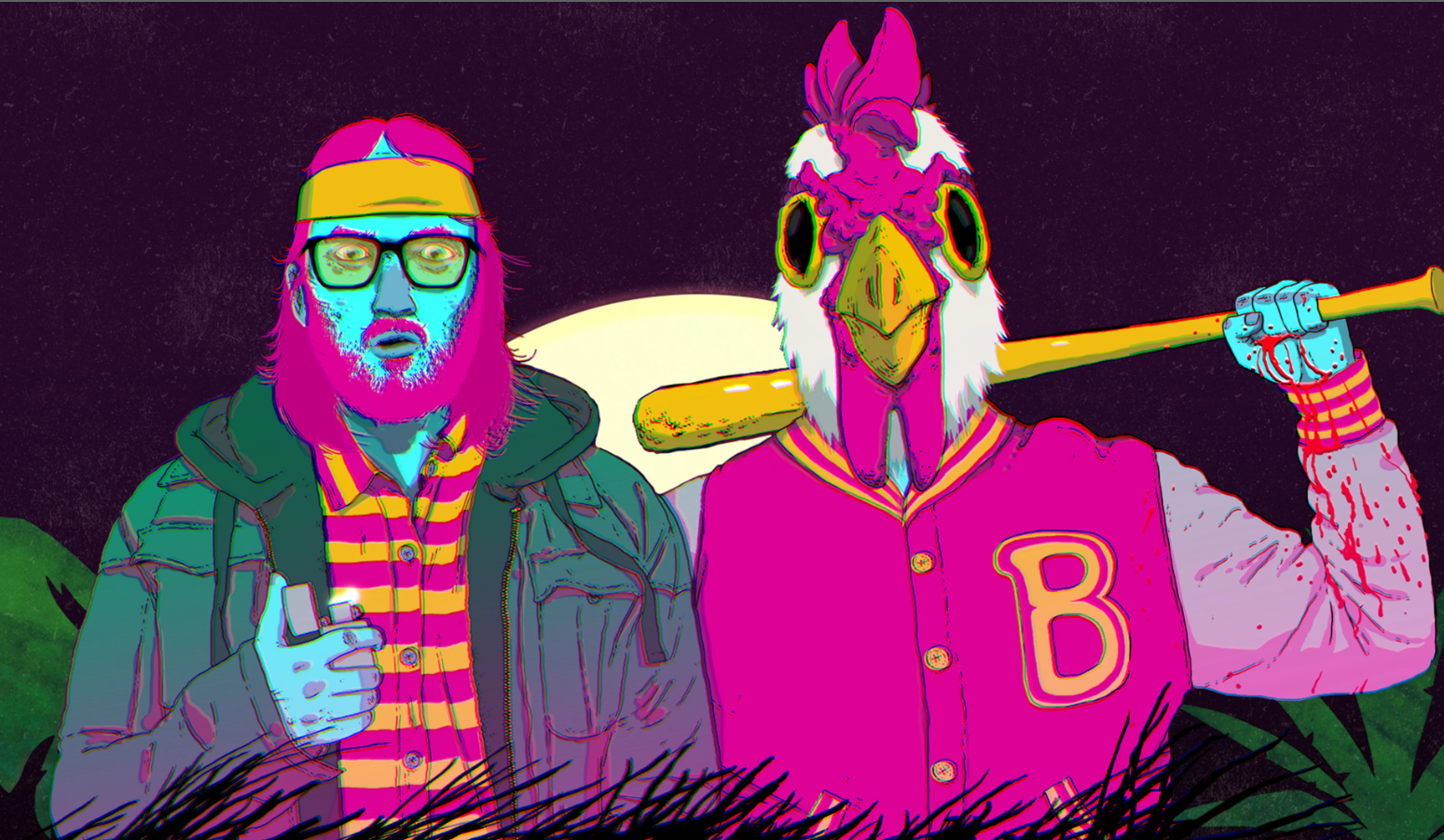The material this week felt like an excerpt from a crash course on masochism. In a funny way, there was a point where I experienced a mental shift from trying harder to actually beat the difficult games to actually seeing how many different ways that I could fail. Granted, failure was not particularly hard to come by, but it was a weirdly liberating experience to do something so opposite to what I’m used to, both in my normal video game experiences and in life in general.
There was something really special about having the difficult game play session as a group rather than just assigning the games for us to play independently like in previous weeks. I not only got to directly witness people complete parts of games that I could only imagine to complete myself – but I also got the experience of failing amongst other people and not immediately feeling singled out. The term “misery loves company” was something that went through my head a lot as I was going through the different games; a word that came up in class, “schadenfreude”, also became one of my favorites throughout our discourse. Especially at an institution like the University of Chicago, it felt so taboo to fail at something – to fail at a class assignment, technically – and actually find enjoyment in that failure.
To take this a step further, I found this experience to be particularly weird because of the fact that I typically use video games as a form of escape. In fact, I usually turn to video games to escape failures that I have experienced in my real life – yet, somehow, a game like Hotline Miami had me giggling like a kid in a candy store. In a way, one could make the argument that failure in video games is more placating because there is the safety net of the “magic circle” and general absence of real-life stakes – but that alone isn’t sufficient in explaining why I personally would actively seek out failure in video games.
What I finally ended up deducing is that life, like a lot of these video games, is hard sometimes. (Shocker, I know.) Sometimes people fall flat on their asses in pursuit of a smoking hot babe. Sometimes, hopefully less frequently, people get their heads blown off by a sawed-off shotgun wielded by a member of the Russian mob. Difficulty and subsequent failure are an intrinsic part of life and sometimes it’s just a matter of coming to terms with the hand being dealt and accepting that things might not end up okay this time around.
There’s a kind of middle ground when it comes to failure: it’s not fun to fail so often that the game isn’t even enjoyable to play anymore, but there has to be some semblance of a fail state in order for the eventual successes to hold any significance. As we discussed in class, there’s sometimes a brief euphoric feeling associated with a failed attempt at a game run, because it establishes the idea that there is the possibility for a win. It just takes… a helluva lot of blood, sweat, slices of Jet’s pizza, and smiling friends to help through the worst of it.


I’m really curious about your brief discussion on the group difficulty play session. I wasn’t able to attend—and you really hit the nose on one of the big reasons I was disappointed to miss it. Being able to fail publicly in an environment where the GOAL is to not succeed is such a rare thing. So often, I feel the need to only fail in private, to fail in a way that can happen with nobody watching. In college, failing is very taboo, like you said, and so failure becomes a private and shameful affair. All this to say I think that combining the act of failing with community and wrapping the entire experience in air of fun and levity is important.
Besides the destigmatization of failure in this context, I’m also curious about the other pros of “group gaming”. While gaming can be a solo / solitary activity, you also have old-school LAN parties, game streams on Twitch with thousands of watchers, or people gathering to play Smash in the MADD Center. Not only is it fun to do things with your friends, the communal experiencing of a game adds something. When playing Bioshock in the MADD Center a couple weeks ago, the debate over whether or not to harvest the Little Sisters and the discussion of tips and the shared reactions made the experience better.
Your post made me wonder how much of our action in gaming is a product of a desire to succeed versus an aversion to failure. This is a question that I ask myself in regards to work, like how much of my work stems from a desire to not feel stressed. In terms of games, I think it depends on the emotional investment we put into a game and that can be a result of people watching or our own convictions regarding our ability. I think that depending on how we invest into a game, we will change what types of risk we take and subsequently change how we play the game.
I think the social setting of the difficult games session really helped me enjoy play experience. If I was alone at home I probably wouldn’t have enjoyed myself as much as because I’d be too caught up in the fact that I was losing repeatedly. At the difficult games session, once I got tired of losing I was happy to pass the controller to someone else and watch them play. I rooted for them to win, but even if they lost, it was nice not to feel like the only one who struggled.